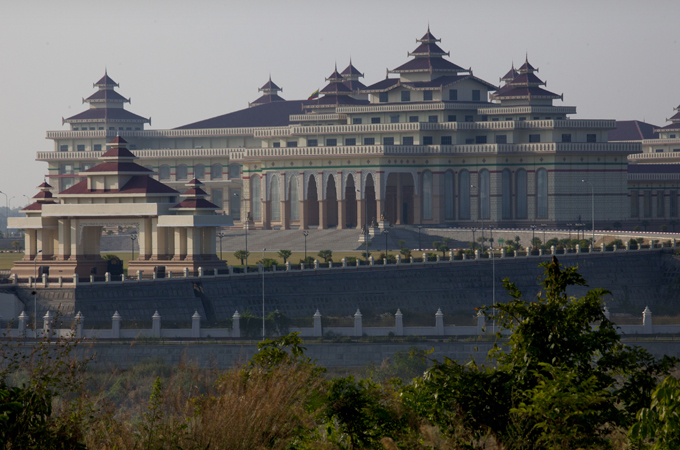 |
| Myanmar's parliament is dominated by the military, through reserved seats and pro-military parties |
Government says voting to be held on April 1, with Aung San Suu Kyi's party set to run for first time in 20 years.
Myanmar has set April 1 as the date for parliamentary by-elections, which will see pro-democracy leader Aung San Suu Kyi's party return to mainstream politics for the first time in two decades.
Suu Kyi's National League for Democracy (NLD) has said that it will run for each of the 48 seats being contested in the by-election.
The government announced the date for elections late on Friday.
The NLD boycotted last year's general elections because of what it termed restrictive rules, including one that disallowed Suu Kyi from being a candidate. The government has since then removed many of those proscriptions.
Most of the seats to be contested in the April poll were vacated by members of parliament who became cabinet ministers after the first parliamentary session in January.
The military is guaranteed 110 seats in the 440-seat lower house, and 56 seats in the 224-seat upper house. The pro-military party occupies 80 per cent of the remaining 498 seats in both houses.
Forty of the seats to be contested on April 1 are in the lower house, six in the upper house and two in the regional assemblies.
'Road to democracy'
According to the official announcement on Friday, political parties that wish to contest the by-elections must submit their candidate lists by January 31.
Nyan Win, an official with the NLD, said that Suu Kyi is expected to run for the lower house in the Kawhmu constituency, about 30km south of Myanmar's commercial hub Yangon, where she lives.
The NLD re-registered as a political party on December 23, after having been stripped of official status following the boycott of the 2010 polls.
The by-elections will be a test of the national popularity of the NLD, and Suu Kyi has cautioned that "the road ahead is full of difficulties and the road to democracy is endless".
The NLD won an overwhelming majority in the 1990 elections, but the results were ignored by the country's military government.
Last year's elections were the first to take place since 1990.
